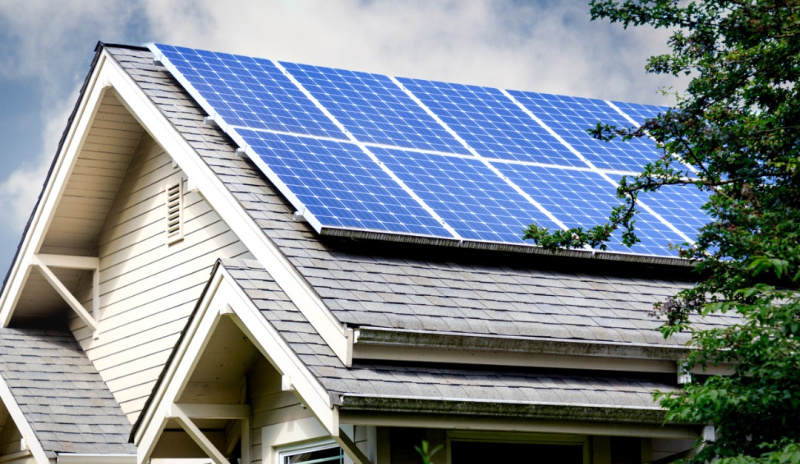-
How to Choose the Right Vehicle for Your Teenager
24 November 2023 Getting a driver’s license is exciting for teens, but it can be a source of worry for parents. You might fear that your child will get into an accident, or you might be concerned about how the cost of car insurance will affect your family’s budget.
Getting a driver’s license is exciting for teens, but it can be a source of worry for parents. You might fear that your child will get into an accident, or you might be concerned about how the cost of car insurance will affect your family’s budget.
Be Practical
Your child might dream of driving to school in a brand-new sports car outfitted with impressive features, but that would be expensive, unnecessary and unwise. Your teenager needs a safe and reliable vehicle to get from Point A to Point B. When searching for a car for your family’s newest driver, focus on practicality and affordability.
For many families, a new car is simply too expensive. You can find a reliable used vehicle that’s relatively new, has most or all of the same safety features as the latest model, is in good condition and costs significantly less than a brand new one.
Find a Safe Vehicle
Young drivers are inexperienced, and they also tend to drive too fast and get distracted. That makes teenagers more likely to get into accidents than older drivers.
When you begin your search for a car, focus on safety ratings. Look for a vehicle with features such as emergency braking and sensors that can detect when your child drifts into the wrong lane. Find a vehicle that’s designed in a way that will reduce the risk of injuries should a collision occur.
Get a Car That Your Teen Will Be Comfortable Driving
Look for a vehicle that will be relatively easy for a young and inexperienced person to operate. That will make driving less stressful for your child and reduce the risk of an accident. For example, you should avoid a large car or an SUV that will be difficult to maneuver.
Buy a Reliable Vehicle
Reliability is important whenever you’re searching for a vehicle. If you’re going to buy a used car, have a mechanic you trust inspect it and tell you if it has any serious issues. If you’re planning to purchase a new vehicle, look for a make and model with a reputation for reliability, as well as a good warranty.
Consider Insurance Costs
Don’t forget to factor insurance premiums into your decision. Rates for young drivers tend to be significantly higher than they are for adults. The type of vehicle you choose and the safety features it has can also impact your premiums. Once you’ve narrowed down your search to a handful of vehicles, contact your insurance company or agent to get quotes and decide which car will be the best choice.Published with permission from RISMedia.
-
Should You Install Solar Panels on Your Roof?
24 November 2023 High utility bills strain the budgets of many homeowners. Installing solar panels can significantly reduce the amount you spend on electricity. Before you decide whether to put solar panels on your roof, consider both the benefits and the downsides.
High utility bills strain the budgets of many homeowners. Installing solar panels can significantly reduce the amount you spend on electricity. Before you decide whether to put solar panels on your roof, consider both the benefits and the downsides.
Environmental Impact
Using fossil fuels to generate electricity can harm the environment. In addition, fossil fuels are in limited supply.
Sunlight is a renewable source of energy. Fueling the appliances in your home with solar energy can allow you to reduce your reliance on fossil fuels. That can have a positive impact on the environment.
The mining of materials and the manufacturing of solar panels also emit greenhouse gasses. In the long run, however, the use of solar energy has less of a negative environmental impact than reliance on fossil fuels.
Upfront Cost and Long-Term Savings
The cost to install solar panels can be steep, but you might qualify for government incentives that can offset part of the initial expense. As solar technology has improved, the cost of solar panels has come down. Prices are expected to keep falling in the future.
Generating your own electricity can allow you to reduce or eliminate your reliance on an electrical grid. That can save you money each month. If you intend to live in your house for several years, you’ll be able to break even on your initial investment and then continue to reap the financial benefits for years after that.
Solar panels are easy and affordable to maintain. You’ll need to have professionals clean and inspect them regularly, but the cost is low compared to other forms of home maintenance.
Ability to Store Energy
If you install solar panels on your home, you’ll be able to store excess electricity that you can use on rainy or overcast days when there’s little or no sunlight. If you generate more electricity than your family uses, you might be able to sell it to your local utility company for other local consumers to purchase. That can reduce your community’s reliance on fossil fuels. The ability to earn money on your investment can also make installing solar panels a more financially attractive option.
Impact on Property Values
Energy efficiency and concern for the environment are important to many homebuyers. A house with solar panels can be particularly appealing to eco-conscious buyers and those who want to keep their utility costs down. If you install solar panels, you’ll get to enjoy financial savings while you live in your home and get a higher price when you sell it.
Weigh the Costs and Benefits
Generating solar energy can pay off financially and reduce your family’s environmental impact. The upfront cost can be high, but you might decide that the long-term savings would make it worthwhile. Compare the price of solar panel installation to your potential savings so you can make an informed decision.Published with permission from RISMedia.
-
Everything You Need to Know About Moving Out
24 November 2023 From staging and listing your home, navigating showings and open houses, negotiating the offer, and waiting out the appraisal and inspection, selling your home can feel never-ending. However, before you know it, it will be move-out day, a day filled with many emotions. So before you pack up the moving truck, read on for everything you need to know about moving out of your home.
From staging and listing your home, navigating showings and open houses, negotiating the offer, and waiting out the appraisal and inspection, selling your home can feel never-ending. However, before you know it, it will be move-out day, a day filled with many emotions. So before you pack up the moving truck, read on for everything you need to know about moving out of your home.
Start early
Before you officially list your home, it’s helpful to begin assessing your belongings to determine what will come with you when you move and what you can part with. Separating items into groupings that can be thrown out, donated, or consigned will help you streamline your belongings to result in a more straightforward moving process. Ideally, by the time you’re ready to pack your home, all you’ll have to do is pack up the items you’re taking with you.
Moving quotes
Contacting at least three companies for quotes before you hire a moving service will help you assess the best moving company for your situation. Additionally, consider if you want to pack your belongings yourself or prefer the moving service to pack up your belongings for you. If you’re packing your own items, remember to order your moving supplies so you have enough boxes, bubble wrap, tape, and packing paper to pack your belongings thoroughly. Any moving service you contact should be licensed and insured.
Create a packing plan
Before packing, create a plan so your belongings are packed strategically and cohesively. Packing up one room at a time in clearly marked boxes will allow you to move through the house and check off one room at a time. In addition, packing your essentials together will make it easier to unpack when you move in. For example, in the kitchen, you can pack up a box of items you’ll need immediately, such as glasses, silverware and plates. On the other hand, you can likely wait a few days to unpack your servingware or bakeware.
Packing a moving day box and a suitcase can help you transition into your new home more seamlessly. A suitcase that includes your necessary daily essentials, including your toiletries, pajamas, bed sheets, several changes of clothes, medications, and your valuables, will help you avoid digging through boxes to find the essentials you need to shower and go to bed after a long day of moving. Instead, you can pack the essentials in a moving day box to make your moving day easier. This may include garbage bags, scissors, essential tools, light bulbs, toilet paper, and paper towels.
Make plans for children and pets
Since moving days can be chaotic, arranging childcare and pet care can help the day go more smoothly, help them stay safe, and lessen any moving anxiety. Moving day comes with risks, such as different vehicles and people in and out of the house, uncovered outlets, open windows and doors, and sharp tools such as scissors and box cutters.
Deep clean
While most contracts require the house to be broom swept, hiring a deep cleaning service is an appreciated courtesy for new homeowners. A deep cleaning service will clean the areas of your home you may have overlooked and is also one last task you must complete.
Cancel utilities and internet
Before moving day, contact your utility companies, such as the electric, gas, and water companies and the internet service provider, to establish a last day of service.Published with permission from RISMedia.
-
Obedience Training Tips for Dog Owners
23 November 2023 Having a dog can be an incredibly rewarding experience. It can also be incredibly frustrating if your pet doesn’t obey commands or repeatedly does things that it shouldn’t. Here are some tips on how to train your dog.
Having a dog can be an incredibly rewarding experience. It can also be incredibly frustrating if your pet doesn’t obey commands or repeatedly does things that it shouldn’t. Here are some tips on how to train your dog.
Start Early
The sooner you begin training your dog, the better. It will be much easier to teach your dog desirable behaviors right after you bring it home than to let it develop bad habits, then try to modify its behavior later.
Use Positive Reinforcement
Praising and rewarding your dog for good behavior will be more effective than punishing it for unwanted behavior. If your dog responds correctly to a command or behaves in a positive way, provide a reward.
Different dogs respond well to different rewards. Some love treats, while others prefer a toy or a game of fetch. Figure out which reward(s) work best with your pet.
When training your dog, be enthusiastic and use a positive tone of voice. Dogs are eager to please. If your pet understands that it made you happy, it will be more likely to repeat the behavior.
Reward Small Improvements
Learning anything is a process. Don’t be frustrated if your dog doesn’t do exactly what you want it to do the first few times you try to teach it something new. Instead, reward your dog whenever it takes a step in the right direction. Those small improvements will add up.
Use Short, Frequent Training Sessions
Trying to teach your dog too much at once, or devoting long periods of time to training, can backfire. Your dog will learn better if you work on obedience training a little at a time, several times per day. Give your dog occasional commands and provide rewards when it responds appropriately.
Work on obedience training in different places and situations. For example, give your dog commands when you’re in the house, in the yard, in the car and at the park so it will learn to follow commands in a variety of settings, even when there are distractions.
Be Consistent
Dogs can become confused if they’re given different commands or if some people allow behaviors that others don’t. Make sure that every member of your family is on the same page as far as what behaviors are and are not allowed. When asking your dog to do something, such as sit or stay, make sure that everyone uses the same command.
Use Both Verbal Commands and Hand Signals
Your dog might not understand or respond to verbal commands alone, at least at first. Using hand signals can help your pet understand what you want it to do. You can incorporate both verbal commands and hand signals in your training sessions.
Get Professional Help
If your dog doesn’t respond well to these strategies or you’re struggling to figure out how to deal with a particular behavior, consult a dog trainer. Professionals have experience addressing a wide range of issues. A trainer might recommend group classes or individual sessions.Published with permission from RISMedia.
-
What Type of Oven Should You Choose?
23 November 2023 If your oven needs to be replaced, you don’t necessarily have to get one that’s the same as your old model. Conventional ovens are popular, but you might want to consider getting a convection oven.
If your oven needs to be replaced, you don’t necessarily have to get one that’s the same as your old model. Conventional ovens are popular, but you might want to consider getting a convection oven.
How Conventional and Convection Ovens Work
A conventional oven, which is what most people are familiar with, heats food from the bottom up. A convection oven, on the other hand, uses a fan to circulate hot air and heat food from all sides.
Since a convection oven uses a fan, it’s noisier than a conventional oven. Both types of ovens are available in electric and gas models.
How Your Cooking Experience Can Differ
When cooking with a conventional oven, you have to place the food in the center and keep an eye on it to make sure that it doesn’t burn, especially on the bottom. There’s a much lower risk of burning food in a convection oven since it cooks more evenly. You can place food anywhere, and you can cook multiple dishes at once, as long as you don’t block the fan.
Because it relies on air circulation, a convection oven can cook food faster and at a lower temperature than a conventional oven. Recipes are generally written assuming that a person will be using a conventional oven. If you have a convection oven, you’ll need to reduce the temperature and cooking time listed in a recipe.
If you like meat and vegetables that are crispy on the outside and soft on the inside, you’ll find that’s easier to achieve with a convection oven since it heats food from all sides. Convection ovens are also good for baking denser desserts, such as pies and pastries, because they can create a flaky outside and a soft inside.
How Costs Compare
The initial cost of a convection oven can be significantly higher than that of a conventional oven. On top of the cost of a convection oven itself, you might need to have a ventilation system installed. In addition, you might have to get some new cookware, such as rimless baking sheets, so air can circulate freely.
Conventional ovens tend to be easy to maintain, durable and long lasting. If they break down, repairs are generally straightforward. A convection oven has more parts that require maintenance and that might need to be repaired.
How to Figure Out Which Is Right for You
If you can afford the upfront cost, a convection oven can save you money in the long run. Since it requires lower temperatures and shorter cooking times than a conventional oven, a convection oven can reduce your monthly utility bills. A convection oven might also be a good choice if you have a large family, like to entertain or don’t have much experience with cooking. If you’re on a tight budget or you just want to stick with what’s familiar, you can go with a conventional oven.Published with permission from RISMedia.